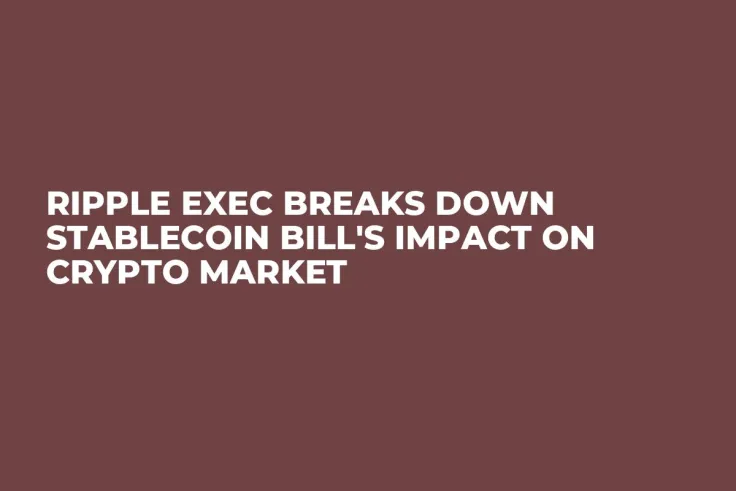
Disclaimer: The opinions expressed by our writers are their own and do not represent the views of U.Today. The financial and market information provided on U.Today is intended for informational purposes only. U.Today is not liable for any financial losses incurred while trading cryptocurrencies. Conduct your own research by contacting financial experts before making any investment decisions. We believe that all content is accurate as of the date of publication, but certain offers mentioned may no longer be available.
The recent signing of the GENIUS Act has refocused attention on stablecoins. In a recent tweet, Ripple's SVP of Stablecoins, Jack McDonald, discussed the implications of stablecoin legislation for cryptocurrency and digital infrastructure.
The stablecoin bill, known as the GENIUS Act, was signed into law on Friday, marking a huge win for the crypto industry, which has long pushed for a regulatory framework to gain greater legitimacy.
Stablecoins are designed to keep a steady value, typically a 1:1 U.S. dollar peg, and their popularity has grown, primarily among crypto traders moving funds between tokens. This milestone is expected to pave the way for digital assets to become a common means of making payments and transferring funds.
The new law requires stablecoins to be backed by liquid assets like U.S. dollars and short-term treasury bills, and issuers must publicly declare the composition of their reserves regularly.
Crypto companies and executives believe this will enhance stablecoins' credibility and encourage banks, retailers and consumers to utilize them to transfer funds instantly.
Ripple exec weighs in
The CEO of Standard Custody and SVP of stablecoins at Ripple, Jack McDonald, indicated in a tweet that the signing of the GENIUS Act has led to increased interest among consumer companies, retailers, platforms and tech firms in launching their stablecoin.
McDonald cautioned companies looking to enter the stablecoin race, stating that issuing a stablecoin is not as simple as launching a new app. "It's infrastructure," he explained. "And getting it wrong has real consequences."
One of the key challenges McDonald identified is the trend toward walled-garden stablecoins, creating limited-use assets that function only within a single brand or ecosystem.
McDonald highlighted the essence of responsibility and trust, which necessitates the need for clear, auditable reserves. A stablecoin, he says, is not a product extension or a brand feature, nor is it simply a payment shortcut; rather, it is financial infrastructure that must be treated as such.


 Vladislav Sopov
Vladislav Sopov Dan Burgin
Dan Burgin